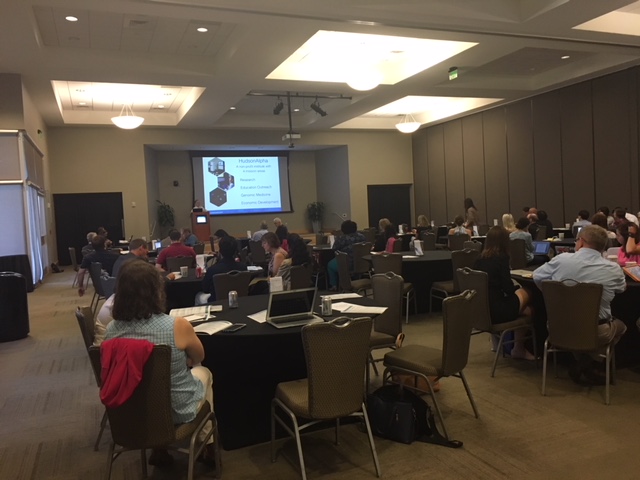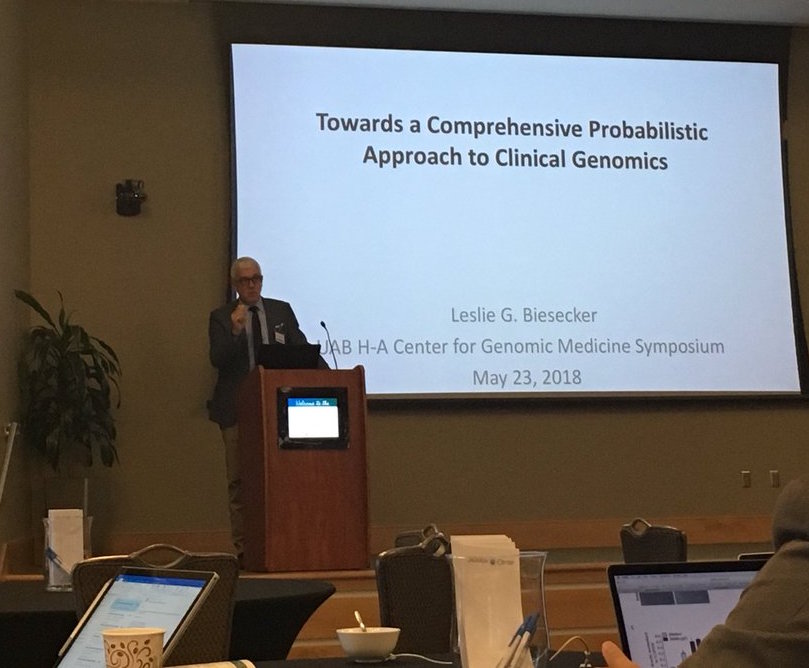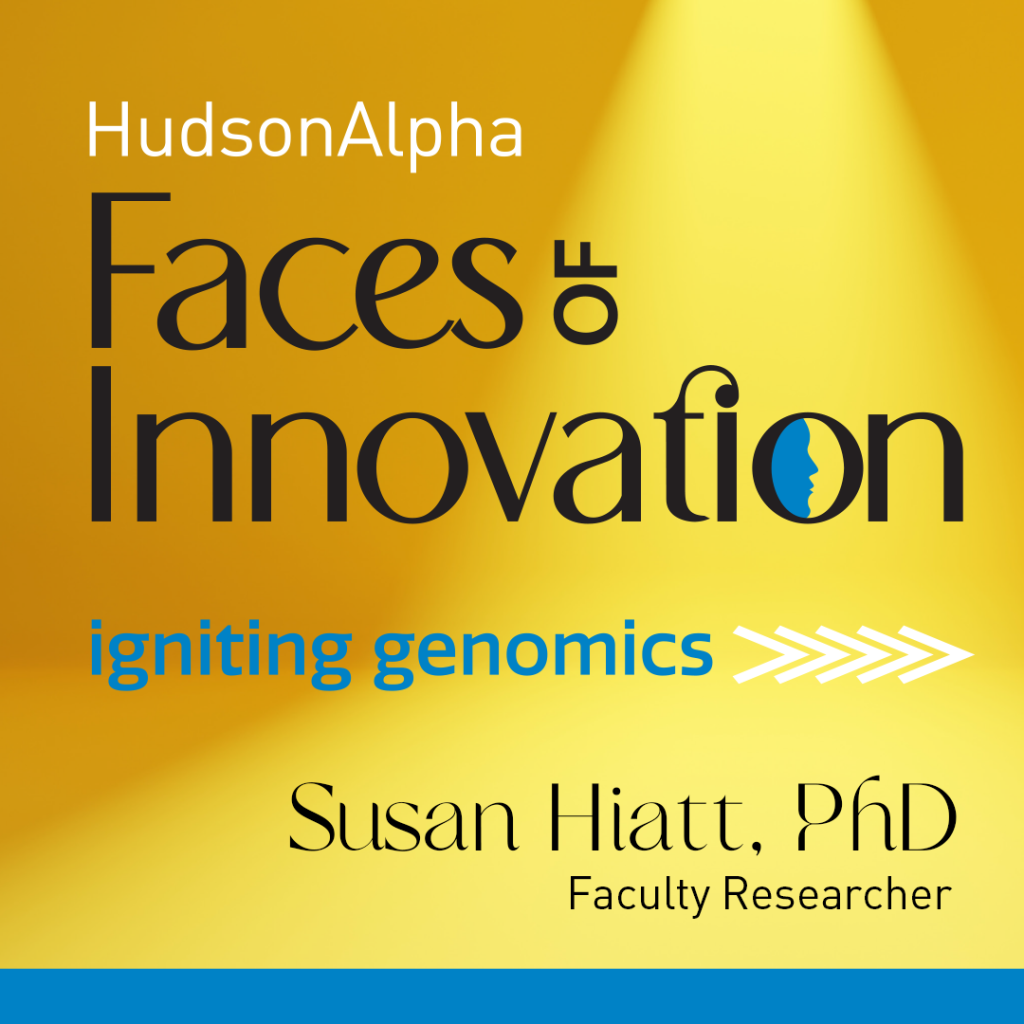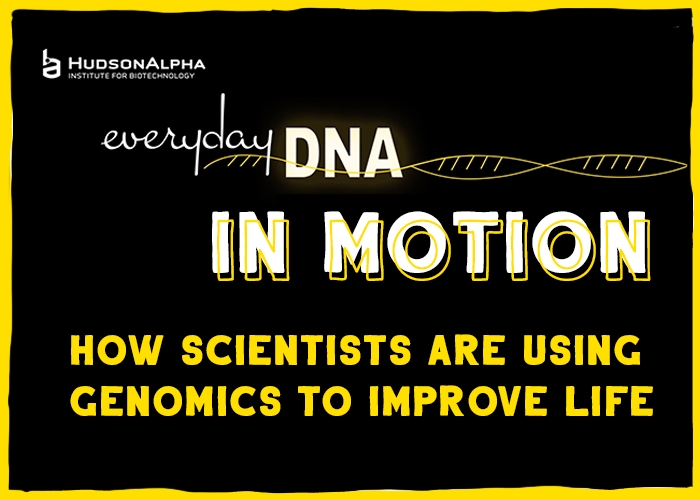Nearly 100 researchers, students and postdocs gathered at the Jackson Center on Wednesday, May 23, 2018 for the fourth annual Center for Genomic Medicine (CGM) Symposium presented by HudsonAlpha Institute for Biotechnology and the University of Alabama at Birmingham (UAB).
Established in 2014, the CGM is a collaboration between HudsonAlpha and the UAB School of Medicine and aims to accelerate discoveries in genomics and propel those discoveries into clinical practice.
HudsonAlpha and UAB researchers gave an update on the CGM’s research, pilot grants and postdoctoral training program.
Rick Myers, PhD, HudsonAlpha president and science director; kicked things off and discussed a “Decade of Discoveries” at HudsonAlpha, the institute’s the many collaborations with UAB.

“HudsonAlpha relies heavily on collaboration and our relationship with UAB has helped us grow as an institute, and serve patients and families not only in Huntsville, but all of Alabama and beyond,” said Myers.
Myers co-directs the CGM with Bruce Korf, MD, PhD, of UAB. Korf and HudsonAlpha Faculty Chair Greg Barsh, MD, PhD; also highlighted institute collaborations including the Alabama Genomic Health Initiative (AGHI), the CSER project and SouthSeq.
“As of this week, more than 1800 people have signed up to participate in AGHI, representing 57 of the 67 counties in the state,” said Korf.
Barsh went on to discuss SouthSeq: DNA Sequencing for Newborn Nurseries in the South, which is part of a network of nationwide sites called the Clinical Sequencing Evidence-Generating Research Consortium, or CSER2. CSER2 expands HudsonAlpha’s existing large-scale DNA sequencing research project, the Clinical Sequencing Exploratory Research Consortium (CSER).
SouthSeq will enroll infants in neonatal nurseries with birth defects and/or other signs suggestive of a genetic disorder.
“In many areas in the South, there are patients and families that could benefit from genomic medicine and genetic counseling, but the technology and the genetics specialist aren’t there,” Barsh explained. “So one of the goals for SouthSeq is to develop and test ways that the understanding and delivery of genomic medicine can be carried out by non-genetics professionals.”
Leslie Biesecker, MD, of the National Human Genome Research Institute (NHGRI), delivered the keynote address, “Towards a Comprehensive Probabilistic Approach to Clinical Genomics.”

Dr. Leslie Baker, keynote speaker for the 2018 CGM Symposium
In his talk, Biesecker addressed the challenges around the use of genetic variant information to make clear diagnoses. He noted that genetic variants, even when pathogenic, are rarely 100% predictive of disease; rather, they are associated with a probability of disease, or disease risk.
Biesecker challenged the clinicians, researchers, and laboratory specialists in attendance with his assertion that the probability of the pathogenicity of variants is not the probability of the correctness of the patient’s diagnosis.
“We are conflating those two concepts, which leads to confusion. We need to allow labs to focus their interpretation skills on the pathogenicity of a variant. The doctor’s job is to make the clinical molecular diagnosis for a patient. Doctors should be making diagnoses, not labs,” Biesecker stated.
Speakers also included:
- Kyle Feeley, PhD, UAB-HA Training Program Awardee 2016
- Nadiya Sosonkina, PhD, UAB-HA Training Program Awardee 2016
- Kirk Habegger, PhD, UAB-HA Center for Genomic Medicine 2017 Grant Awardee
- Eddy S. Yang, MD, PhD, UAB-HA Center for Genomic Medicine 2017 Grant Awardee
- Merry-Lynn McDonald, MSc, PhD, UAB-HA Center for Genomic Medicine 2017 Grant Awardee
The one-day Symposium wrapped up with working sessions, where attendees broke into groups to discuss collaborative systematic approaches in certain areas of interests. To learn more about the CGM, visit https://hudsonalpha.org/cgm/.


